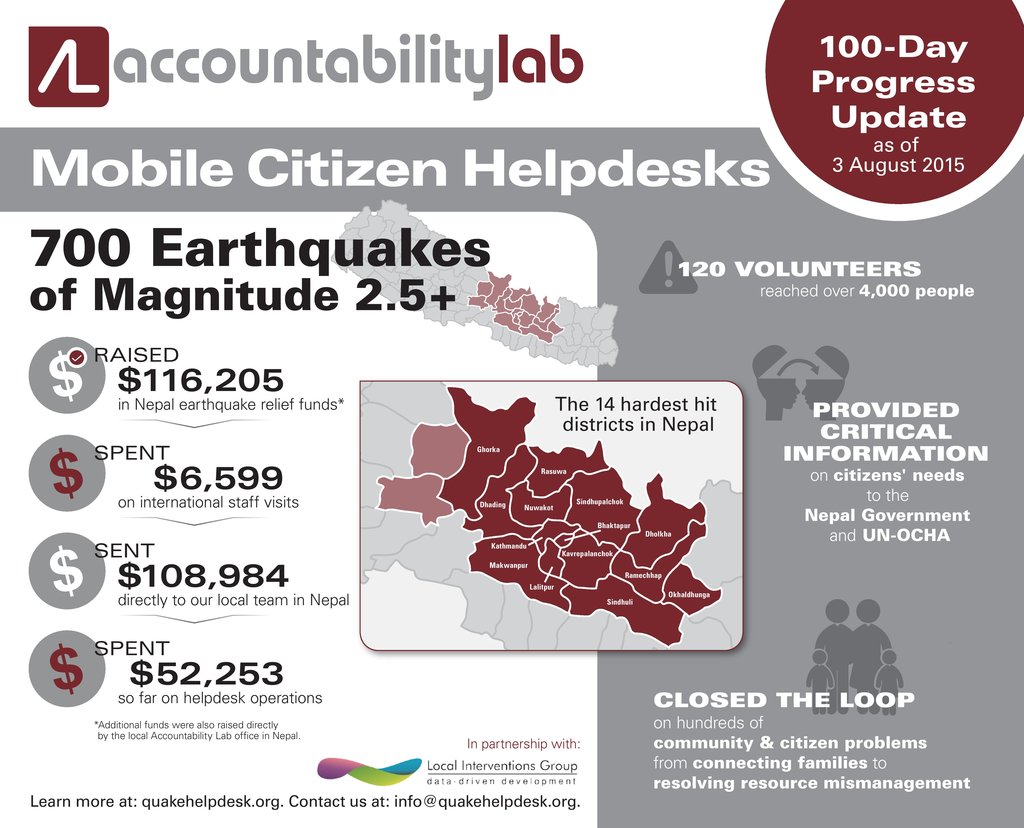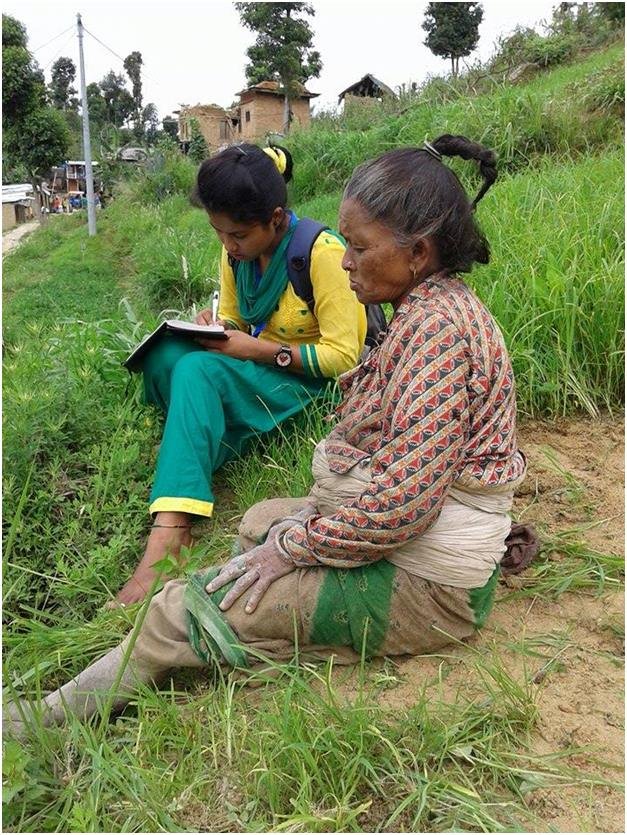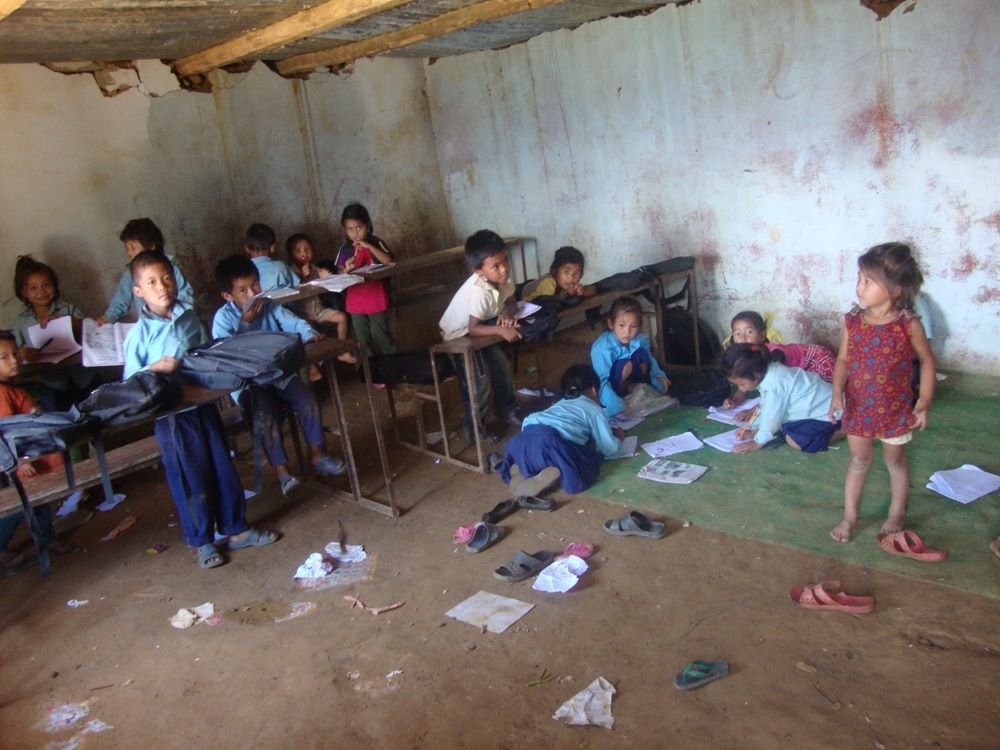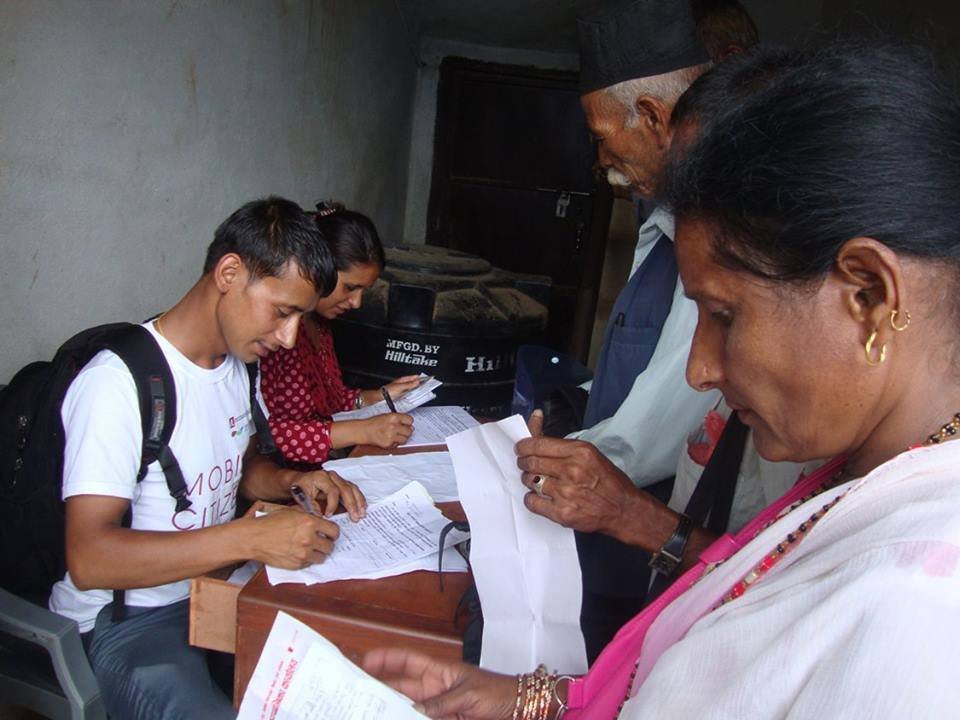By Anne Sophie Ranjbar | Associate Director
The Mobile Citizen Helpdesks (#quakehelpdesk) are coordinated groups of volunteers who are closing information gaps and building feedback loops in the worst-affected areas of post-earthquake Nepal. The Accountability Lab and Local Interventions Group launched the Helpdesks within 24 hours of the first earthquake on April 25th, and our volunteers immediately began meeting with citizens, gathering information and assessing needs immediately. We now have over 100 enthusiastic volunteers who are continuing to work on the following 4 components of the Mobile Citizen Helpdesk:
1. Directly solving hundreds of citizens' problems related to the earthquake across the country. For example, our volunteers have helped citizens who could not write fill in the relevant forms to access government relief aid, connected people with relief workers to help rebuild their home, brought government engineers to inspect the safety of people's homes, connected at-risk communities with health and hygeine training, reported a lack of clean drinking water to the Cheif District Officer who then ordered a new water supply, and informed citizens where to report how to report discrimination in relief distribution to their local police station.
2. Collecting feedback from citizens and officials on key challenges and opportunities in the relief efforts to inform the international response; and disseminating information to help them solve problems. The data is broken down by gender, geographic area, and ethnic group, and reveals several critical issues with the earthquake recovery process. For example, the majority of citizens do not feel that support has been provided fairly, because it is often based on political party affiliation or a first come, first served basis. Check our new infographic summarizing the first three months of this process here (or read the full report here and see the raw data here) to learn more! Going forward, we will release a new report every month to help aid providers adapt in real-time to citizens’ concerns. This data is feeding into UN-OCHA’s Inter-Agency Common Feedback Project and informing the work of over 25 of the largest agencies and NGOs in the country.
3. Tracking rumors and perceptions on the ground to eliminate information gaps between the media, humanitarian agencies and citizens through OpenMic Nepal. During a crisis, survivors are faced with many uncertainties and questions. Each week, our volunteers speak to up to 450 people (in 74 locations to date) and then geo-locate, analyze, and report on the most pressing or common concerns. Then, bulletins are released with verified information on these concerns (see the latest reports here), posted in villages and local government offices, and sent to hundreds of contacts at humanitarian agencies and local radio stations. They have helped citizens understand critical issues, such as who is eligible for a loan to rebuild their houses destroyed by the earthquake and the likelihood of another major earthquake in Nepal, and debunk rumors, such as that government-issued earthquake victim ID cards printed on certain colored paper are invalid. The team will continue to put out these weekly bulletins, which have become increasingly popular with citizens and the international community who are trying to understand how best to understand local dynamics.
4. Monitoring funding and decision-making from the central to the local levels to ensure that aid is distributed in a fair and transparent way. This “Follow the Money” work is at the preliminary stages. To date our volunteers have begun to gather and synthesize budget information at the district and village level in 10 districts to understand the financial flows that are reaching the local governance structures. They will then begin to validate this information on the ground through carefully designed surveys with local government officials, NGO staff and citizens.
All this great progress is made possible by your generous support. We are now more than halfway towards the crowdfunding goal, and hope you will consider giving again as we face many more important months ahead. Follow the Accountability Lab on Twitter, Facebook, YouTube and Instagram for more updates, and please help us spread the word about our live-saving work in Nepal!
Links:
Project reports on GlobalGiving are posted directly to globalgiving.org by Project Leaders as they are completed, generally every 3-4 months. To protect the integrity of these documents, GlobalGiving does not alter them; therefore you may find some language or formatting issues.
If you donate to this project or have donated to this project, you can receive an email when this project posts a report. You can also subscribe for reports without donating.



